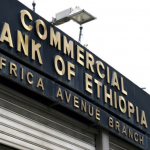
Food security: Obi calls for decisive actions against attacks on farmers

In a statement posted on X today, Peter Obi, the Labour Party presidential candidate, underscored the pressing need for immediate action to address Nigeria’s escalating food crisis.
Drawing attention to recent reports, Obi highlighted the increase in food insecurity among Nigerians, which surged from 66.2 million in Q1 2023 to 100 million in Q1 2024, according to the World Food Programme (WFP, 2024).
Quoting the distressing statistics from the report, Obi emphasised the severity of the situation: 18.6 million individuals face acute hunger, and a staggering 43.7 million Nigerians resort to crisis-level or above-crisis-level hunger-coping strategies as of March 2024.
Expressing deep concern over the discrepancy between official reports and the ground reality, Obi pointed to an earlier projection by Cadre Harmonise, which estimated that 31.5 million Nigerians could face acute hunger by June-August of the current year.
He lamented the tragic loss of lives due to starvation while highlighting the exacerbating factors contributing to the food crisis, citing the rampant banditry and terror attacks targeting farmers across the nation.
He mentioned alarming incidents where farmers, desperate to access their farmlands, resorted to paying exorbitant sums in ransom to bandits, with reports indicating that farmers in Sokoto alone have spent about N3 billion in ransom.
Obi condemned the loss of lives and livelihoods among farmers, citing the alarming toll of 165 lives lost to insecurity in the current year alone.
He stressed the urgent need for the government to prioritise tackling insecurity, as the safety of farmers is paramount to mitigating the food crisis and alleviating economic strains caused by food inflation.
Obi called for decisive action, urging the government to address the root causes of insecurity and implement measures to ensure the safety and resilience of Nigeria’s agricultural sector.
He emphasised that Nigeria can only avert the looming humanitarian catastrophe and secure a sustainable future for its citizens through collective efforts and urgent interventions.
Read: Ethiopian bank publishes 567 names left, after 78% recovery of funds lost to technical glitch
About The Author
Related Articles
Iran’s Strikes on U.S. Bases Expose the Hidden Dangers of Hosting Western Troops — A Warning for Africa as Leaders Like Tinubu Expand U.S. Military Presence
The recent escalation in military tensions between the United States and Iran...
ByWest Africa WeeklyMarch 5, 2026What Do Countries Targeted by the United States Have in Common?
Look at the list. Iran, Palestine, Venezuela, Syria, Iraq, Nigeria, Somalia, Yemen....
ByWest Africa WeeklyMarch 4, 2026Three Doctors Suspended as Medical Council Probes Death of Chimamanda Adichie’s Son
Nigeria’s medical regulatory authority has taken the rare and serious step of...
ByWest Africa WeeklyMarch 4, 2026Night Gunfire Near Presidential Palace Sparks Tension in Ouagadougou
Gunshots were heard late on the night of February 28 into March...
ByWest Africa WeeklyMarch 3, 2026










